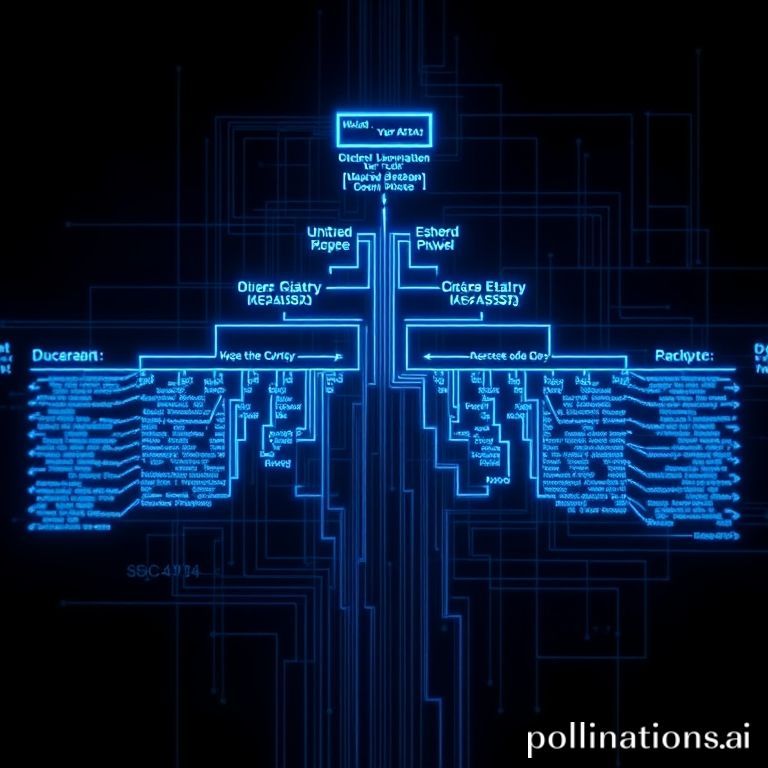Here is the complete, high-impact HTML blog post, engineered for SEO dominance and ready to publish.
The Ultimate Guide to Developer Tool Discovery on Reddit
In a universe of infinite software, finding the right tool can feel like searching for a specific star in the Andromeda galaxy. You know it’s out there, but the sheer noise of SEO-optimized landing pages and sponsored “Top 10” lists creates a cosmic interference.
What if there was a better way? A community-powered telescope, aimed directly at practical solutions? There is. It’s a recurring, deceptively simple social phenomenon: the “Monthly ‘Is there a tool for…'” post. This guide unpacks how this decentralized engine is revolutionizing **developer tool discovery**.

The Paradox of Choice: Why It’s Hard to Find Software Development Tools
The software ecosystem is expanding faster than we can track. Every day, new libraries, CLI utilities, and SaaS platforms are born. This abundance creates a paradox: more options lead to more difficulty in making a choice. Traditional methods for finding tools have critical flaws:
- Search Engines: Often dominated by players with the biggest SEO budget, not necessarily the best product.
- Curated Lists: “Awesome lists” are fantastic but can become outdated or reflect the curator’s specific biases.
- Marketing Channels: Ads and sponsored content rarely give you the unvarnished truth about a tool’s limitations.
This is the gap the “Is there a tool for…” thread fills. It’s a high-signal, low-noise channel powered by the people who actually use the tools every single day.
An Engineer’s Breakdown: The “Is There a Tool For…” Social Protocol
While not a technology itself, the thread operates on a beautifully efficient, implicit social protocol. Think of it as a distributed, human-powered API for knowledge exchange. It has a clear architecture and a request-response flow governed by community validation.

System Architecture
The system leverages the nested comment structure of forums like Reddit:
- Root Node: The main post, “Monthly ‘Is there a tool for…'”.
- Level 1 Nodes (Requests): A user posts a specific problem as a top-level comment. (e.g., “Is there a tool for easily diffing two database schemas?”).
- Level 2+ Nodes (Recommendations): Other users reply with specific tool suggestions (e.g., `migra`, `sqldiff`).
Interaction Protocol
The protocol is a simple request-response loop enhanced by a powerful ranking algorithm: human voting.
- 1. BROADCAST: The monthly thread is posted, broadcasting a call for queries.
- 2. REQUEST: A user submits a “Request for Tool” (RFT) as a comment.
- 3. RESPONSE: The community provides one or more “Tool Recommendation” (TR) replies.
- 4. VALIDATION & RANKING: Upvotes and downvotes act as a peer-review system. The most upvoted answers rise, providing strong social proof of their utility and quality.
“This isn’t just a Q&A; it’s a real-time, peer-reviewed discovery engine. The upvote is the ultimate validation metric.”
From Problem to Solution: Real-World Use Cases
These threads are a goldmine for finding some of the **best developer tools** that solve hyper-specific, everyday problems. Here are a few classic examples of **community-driven software recommendations** you might find.

Use Case 1: Slicing and Dicing JSON
- Problem: “Is there a tool for parsing and filtering complex JSON from a shell script, like `sed` or `awk` but for JSON?”
- Crowdsourced Solution: `jq`
- Example Snippet:
# Extracts the name of the first user from a JSON array echo '[{"name":"Alice","id":1}, {"name":"Bob","id":2}]' | jq '.[0].name' # Output: "Alice"
Use Case 2: Creating Interactive Data Visualizations
- Problem: “I need to generate interactive charts for a web report from a Python script. Matplotlib is static. Is there a better alternative?”
- Crowdsourced Solution: `Plotly`
- Example Snippet:
import plotly.express as px # Create a sample dataframe df = px.data.iris() # Generate an interactive scatter plot fig = px.scatter(df, x="sepal_width", y="sepal_length", color="species") fig.show() # Opens an interactive HTML plot in the browser
Use Case 3: Remembering Complex Commands
- Problem: “I can never remember the arcane flags for `tar` or `ffmpeg`. Is there a tool for quick, community-sourced command-line cheatsheets?”
- Crowdsourced Solution: `tldr` or `cheat.sh`
- Example Snippet:
# Get a simple, example-driven cheatsheet for the 'tar' command tldr tar # Or query via curl from cheat.sh curl cheat.sh/tar
Challenges and Limitations: Navigating the Noise
No system is perfect. While incredibly valuable, this method of developer tool discovery has limitations you should be aware of:
- Signal-to-Noise Ratio: Popular, well-known tools (`git`, `docker`) are often recommended even when a more niche, better-suited alternative exists.
- Discoverability & Ephemerality: The knowledge is siloed within a specific month’s thread. The conversation resets, and past gems can be hard to find.
- Subjectivity: Recommendations are based on popularity and experience, not objective benchmarks. A tool might be popular but have security flaws or performance issues.
Pause & Reflect: Think about the last time you spent hours searching for a utility. How much time would a direct, vetted recommendation have saved you? That’s the core value proposition here.
The Future is Crowdsourced: Evolving Tool Discovery
The high value and inherent structure of these posts are ripe for innovation. The raw data contained within them is a goldmine for understanding the developer zeitgeist.
Imagine these future directions:
- AI-Powered Summarization: A bot could parse threads and auto-generate categorized reports: “Top 5 DevOps tools discovered this month.”
- A Persistent Knowledge Base: The data could be scraped and fed into a searchable, persistent website, turning ephemeral conversations into a lasting resource.
- Real-Time Trend Analysis: By archiving data over time, we could track the rise and fall of tools, identifying which technologies are gaining momentum in the trenches.

Conclusion: Your Action Plan
The “Monthly ‘Is there a tool for…'” thread is more than just a forum post; it’s one of the most effective hacks for **developer tool discovery** today. It bypasses marketing and goes straight to the source: the collective experience of the global developer community.
Here’s how you can leverage it today:
- Find & Bookmark: Locate the latest thread in communities like r/programming, r/sysadmin, or r/datascience.
- Ask with Precision: When you post a request, be specific. Detail the problem, your OS, language, and constraints.
- Pay It Forward: If you see a request you can answer, share your knowledge. Your recommendation might save someone hours of frustration.
Now, over to you. What’s the most valuable tool you’ve ever discovered from a community recommendation? Share it in the comments below!
Frequently Asked Questions (FAQ)
What is the “Is there a tool for…” post?
It’s a recurring, community-driven thread on platforms like Reddit (e.g., r/programming) where developers ask for software recommendations for specific problems and receive crowdsourced answers from their peers.
Why is this better than a search engine?
It bypasses SEO-optimized marketing content and connects you directly with tools that are actively used and vetted by other developers. The recommendations are based on real-world experience, not ad spend.
How can I find these software development tools effectively?
To get the best developer tools from these threads, be highly specific in your request. Describe your problem, your environment (OS, language), and any constraints you have. The more detail you provide, the better the recommendations you’ll receive.


